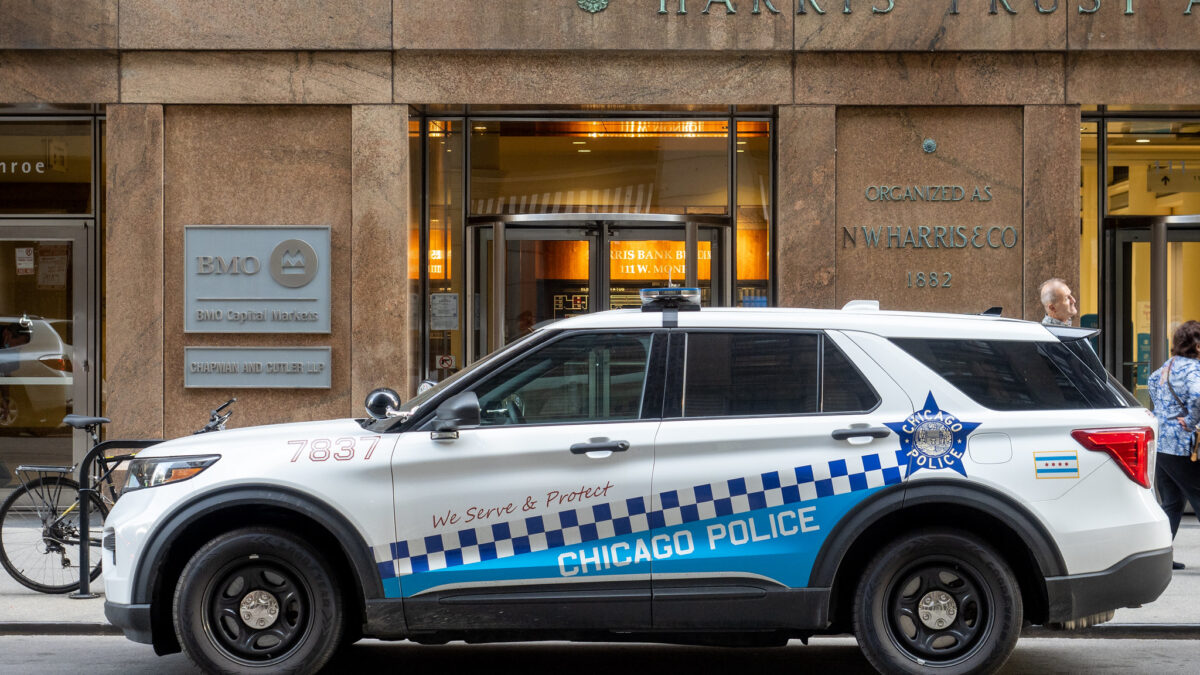
On Jan. 9, The Washington Post published a bombshell report about what President Trump reportedly said on a phone call to the Georgia elections investigator. The headline was “‘Find the fraud’: Trump pressured a Georgia elections investigator in a separate call legal experts say could amount to obstruction.”
A few days ago, on March 11, the Post quietly changed the headline and added this correction to the top of the story:
Correction: Two months after publication of this story, the Georgia secretary of state released an audio recording of President Donald Trump’s December phone call with the state’s top elections investigator. The recording revealed that The Post misquoted Trump’s comments on the call, based on information provided by a source. Trump did not tell the investigator to ‘find the fraud’ or say she would be ‘a national hero’ if she did so. Instead, Trump urged the investigator to scrutinize ballots in Fulton County, Ga., asserting she would find ‘dishonesty’ there. He also told her that she had ‘the most important job in the country right now.’ A story about the recording can be found here. The headline and text of this story have been corrected to remove quotes misattributed to Trump.
Suffice to say, the original story was impactful. “The president’s attempts to intervene in an ongoing investigation could amount to obstruction of justice or other criminal violations, legal experts said, though they cautioned a case could be difficult to prove,” reported the Post story.
The conclusion a sitting president may have committed a crime is still in the corrected story, even though that conclusion was initially at least partly based on fabricated quotes. While they didn’t directly cite this Post story, Trump’s alleged pressuring of Georgia officials was eventually cited by House Democrats in the impeachment articles against Trump. A few weeks later, House Democrats would cite the article and its fabricated quotes on page 10 of their impeachment brief, as well as highlight the article and its fake quotes in oral arguments during the televised impeachment trial.
Even accurately reported, the story may have been newsworthy or unflattering to Trump, but there’s a huge difference in criminal intent between a frustrated and addled Trump asking an investigator to look into fraud he genuinely believes is real versus pressuring the investigator to invent it. For what it’s worth, now that the investigator on the phone call has been identified, she has told local news “she did not perceive any pressure from the president’s call.”
A correction two months after the fact, when the story has already played a significant role in shaping perceptions of political events, seems wholly inadequate. The headline on the Post’s follow-up story is given an anodyne headline: “Recording reveals details of Trump call to Georgia’s chief elections investigator.”
Originally, the fabricated quotes were sourced to “an individual familiar with the call who spoke on the condition of anonymity because of the sensitivity of the conversation.” What has been revealed about how the story was reported makes the Post’s reporting look worse, not better:
The Washington Post reported on the substance of Trump’s Dec. 23 call in January, describing him saying that Watson should ‘find the fraud’ and that she would be a ‘national hero,’ based on an account from Jordan Fuchs, the deputy secretary of state, whom Watson briefed on his comments. In fact, he did not use those precise words. Rather, Trump urged the investigator to scrutinize Fulton County, where she would find ‘dishonesty,’ he said. He also said, ‘whatever you can do, Frances, it would be — it’s a great thing. It’s an important thing for the country. So important. You’ve no idea. So important. And I very much appreciate it.’
While both men are nominally Republicans, Trump and Georgia Secretary of State Brad Raffensperger — Fuchs’ boss — were publicly at each others’ throats. In fact, the Post story acknowledged as much saying, “The president is furious with both Raffensperger and [Georgia Governor] Kemp, who have refused to echo his claims that the election was rigged.”
Revealing the source of the quotes shows the Post had cause for more scrutiny, not less. According to the chairman of the Georgia Republican party, “The Secretary of State’s office secretly recorded the conversation, mischaracterized its contents to The Washington Post and then attempted to delete the recording. It was recently discovered in a laptop ‘trash’ folder as part of an open records search.”
In fairness to Post reporter Amy Gardner, “The White House did not respond to requests for comment,” and if they had responded, perhaps they could have swatted down the story. The Post also took the inexplicably rare step of burning their anonymous source here so she could be held accountable. But in the end, neither of these things makes this Post story any less of a journalistic travesty.
In sum: The Washington Post anonymously printed fabricated quotes they knew were from a second-hand source in the office of a political enemy, couldn’t confirm the quotes with additional sourcing, still attributed them to the sitting president of the United States, used those quotes as a basis to speculate the president committed a crime, and the Democratic party would later repeatedly cite the bogus article when attempting to impeach Trump for “high crimes and misdemeanors.”
But wait! It gets much worse. Several other major media outlets — including NBC, ABC, USA Today, PBS, and CNN — “confirmed” the fabricated quotes from the Post’s anonymous source by, get this, citing their own anonymous sources.
Granted, I got a journalism degree more than 20 years ago, when it was merely a suspect profession rather than total Calvinball. But had I floated this sequence of events as a hypothetical to one of my professors in an ethics class, this would have been considered the media screw-up of the century.
Alas, not only is this going to pass without any consequences, we are inured to this behavior from the media. The Post did this at the tail end of a Trump presidency defined by years of the media repeatedly being debased by sources who used credulously granted anonymity as a cloak to pass off dodgy information, enrich themselves, or, ironically enough, sow doubt about the results of the 2016 election. It’s not exactly puzzling why the Trump White House may have stopped returning reporters’ calls.
Whether or not the mistakes above were intentional, this kind of thing has become so commonplace and reckless that intent is almost functionally irrelevant. With near universality, all these damning media screw-ups run in one political direction. It’s a shame New York Gov. Andrew Cuomo didn’t try and kiss any of those grandmothers he killed, otherwise the media may have been obligated to cover his deadly policies.
Even setting aside the overwhelming partisanship of the media, just as a matter of power dynamics, this all prompts a disturbing question for readers: If these are the journalistic standards used to cover the president or, say, a Supreme Court justice — do you know what happens when ordinary citizens get unfairly accused of wrongdoing by the media and don’t have the resources to fight back? You end up unemployed and washing dishes to eke out a living.
Increasingly, elements of the right are arguing the media’s incentives are now aligned with information warfare, not mere “bias.” The media is too arrogant to understand what increasing hostility means for them and the country, never mind that the growing levels of misinformation breaking into the mainstream are a direct consequence of diminished trust in the corporate media. When you can’t trust the dominant media, people start looking for information elsewhere.
A whole school of liberals and Never Trump adherents think media criticism is some kind of cop-out or distraction from the problems of Trump or the right more generally. But for the left, the media itself is their “cop-out.” In the end, the key difference between the right’s conspiracies and the left’s conspiracies is that the latter get a lot more air time and column inches. “Q will install Trump as emperor” rightly gets mocked and pitied, but “Trump treasonously colluded with Russia to steal the 2016 election” gets mythologized at worst, rationalized at best.
Trump’s shortcomings may be monumental, but the idea he is somehow responsible for the abandoning of basic ethical standards in the institutions that opposed him is absurd at this point, never mind that political opposition is not the media’s vocational responsibility. In that respect, it’s too awkward for the press to confront the truth that Trump’s rise was symptomatic of extant distrust in media; he was not the father of that distrust.
Regardless, Trump’s not president anymore. Thanks to a surfeit of gobsmacking media behavior these last four years, many on the right are still arguing about the role media dishonesty played in his defeat. (Or in the case of one Politico editor, taking credit for censoring accurate news of his opponent’s corruption.)
With Trump gone, we are still stuck with a media that regularly reports things that aren’t true, let alone wholly fabricated as part of some political operation, and this misinformation plays a major role in shaping political and world events. They will then claim they are accountable because two months after the fact, and long after perceptions were hardened, they ran a correction on an anonymously sourced report they never should have run in the first place.
As alarming as all this is, in a disinformation climate such as the one we are currently living in, what happened with the Post’s correction is a rarity. Think for a second about all of the anonymously sourced stories you’ve read in recent years. Now realize it’s the dishonesty and manipulation that doesn’t get exposed that should scare you.









